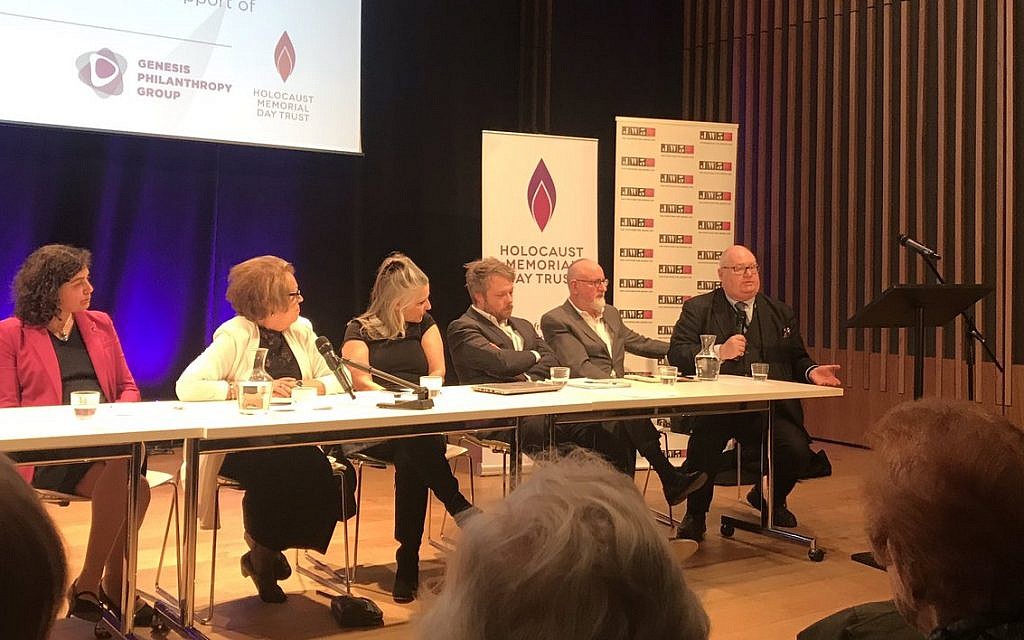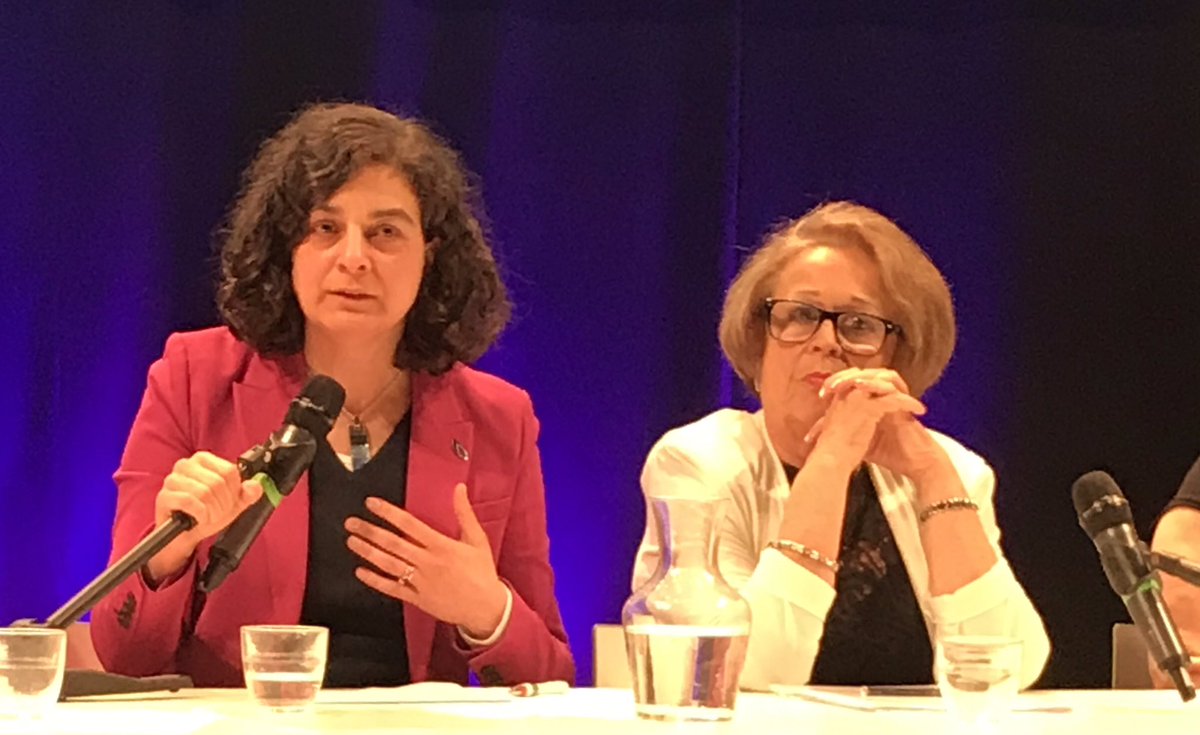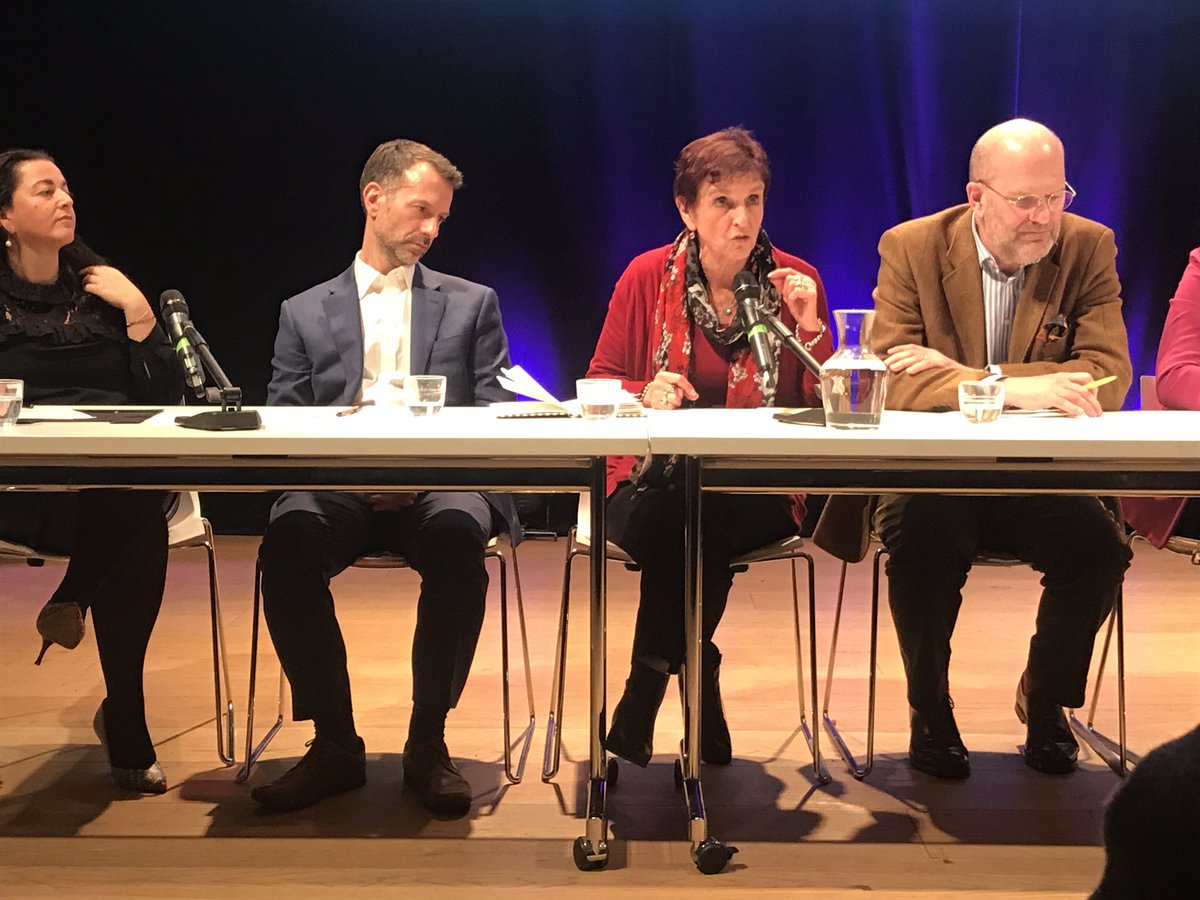Ten leading Holocaust experts debate if Shoah education has failed
After heated discussion lasting almost two hours, panel of experts conclude that there was more work to do in the field of Holocaust education

Ten leading educators and policy-makers in the field of Holocaust studies took part in a special event at London’s JW3 this week to consider whether, with the rise of antisemitism today, Holocaust education had failed.
But after an intensive discussion lasting nearly two hours, the panellists concluded that there was more work to do in Holocaust education — but that there was not necessarily a causal link to increased antisemitism.
Taking part in the event, held jointly under the auspices of the Genesis Philanthropy Group and the Holocaust Memorial Day Trust, were: Trudy Gold, director of Holocaust studies at JW3; Olivia Marks-Woldman, chief executive of the Holocaust Memorial Day Trust; Lord Pickles, the UK special envoy for post-Holocaust issues; Ruth-Anne Lenga, head of academic programmes at UCL’s Centre for Holocaust Education; Dame Helen Hyde, an educator and trustee of the Holocaust Educational Trust; Henry Grunwald OBE QC, chair of the National Holocaust Centre and Museum; Dave Rich, head of policy at the Community Security Trust; James Bulgin, head of content for the Holocaust galleries at the Imperial War Museum; Ben Barkow, director of the Wiener Library; and Karen Pollock MBE, chief executive of the Holocaust Educational Trust.
Get The Jewish News Daily Edition by email and never miss our top stories Free Sign Up
One — perhaps surprising — conclusion was that a strategic error had been made in not including the Armenian genocide in Holocaust memorial commemorations. An audience member said that the “denial and indifference” of the Armenian genocide had given impunity to the Holocaust not being stopped in its tracks”. Wiener Library Ben Barkow agreed, saying its exclusion was “morally indefensible” and Henry Grunwald said that such exclusion was “an anomaly which ought to be revisited.”

Ruth-Anne Lenga noted the major contribution of survivors who spent so much time speaking in schools, responding to survivor Mala Tribich, who spoke about a school which had asked her to give a separate presentation to parents as well as to students. Ms Lenga said: “Survivors don’t do this because they want to do it. It is a compulsion and they feel a duty… in many ways I feel it is a sacrifice, to re-live the nightmare in order to hope that young people will know more about the Holocaust, and that it can change attitudes, including attitude towards Jewish people, is a great thing to do. We are indebted to you.”

Giving a necessarily brief overview of the state of antisemitism, Dave Rich said: “Antisemitism has always posed a danger to us, but the problem comes when it poses a danger to society.” He said that the recent killings in the New Zealand mosques and the murders in a Pittsburgh synagogue last year were pointers of a “far right, resurgent and murderous.” He said there was a need to educate about antisemitism and not just the Holocaust itself.
All the panellists felt there should be improved teacher training and Dame Helen Hyde noted that Holocaust education was not inspected by Ofsted. She also argued for a change in terminology — “anti-Jewish racism” rather than antisemitism — as a better way of putting over the meaning of the message.
Our Chief Executive @KarenPollock100 joined tonight’s panel of experts to discuss the field of Holocaust Education. Thoughtful discussion of our work, engagement with survivors and schools, as well as the challenges we all face. Thanks to @HMD_UK & @JW3London for organising. pic.twitter.com/82SfnKNyr6
— H.E.T. (@HolocaustUK) March 19, 2019
HMDT Chief Executive @OliviaRMW spoke today alongside @KarenPollock100, Steven Frank BEM, a survivor of the Holocaust and @e_murangwa, a survivor of the Genocide in Rwanda at @10DowningStreet. Staff heard moving testimony from both Steven and Eric for #HolocaustMemorialDay pic.twitter.com/MuJ6Cupaxk
— Holocaust Memorial Day Trust (@HMD_UK) January 30, 2019

Thank you for helping to make Jewish News the leading source of news and opinion for the UK Jewish community. Today we're asking for your invaluable help to continue putting our community first in everything we do.
For as little as £5 a month you can help sustain the vital work we do in celebrating and standing up for Jewish life in Britain.
Jewish News holds our community together and keeps us connected. Like a synagogue, it’s where people turn to feel part of something bigger. It also proudly shows the rest of Britain the vibrancy and rich culture of modern Jewish life.
You can make a quick and easy one-off or monthly contribution of £5, £10, £20 or any other sum you’re comfortable with.
100% of your donation will help us continue celebrating our community, in all its dynamic diversity...
Engaging
Being a community platform means so much more than producing a newspaper and website. One of our proudest roles is media partnering with our invaluable charities to amplify the outstanding work they do to help us all.
Celebrating
There’s no shortage of oys in the world but Jewish News takes every opportunity to celebrate the joys too, through projects like Night of Heroes, 40 Under 40 and other compelling countdowns that make the community kvell with pride.
Pioneering
In the first collaboration between media outlets from different faiths, Jewish News worked with British Muslim TV and Church Times to produce a list of young activists leading the way on interfaith understanding.
Campaigning
Royal Mail issued a stamp honouring Holocaust hero Sir Nicholas Winton after a Jewish News campaign attracted more than 100,000 backers. Jewish Newsalso produces special editions of the paper highlighting pressing issues including mental health and Holocaust remembrance.
Easy access
In an age when news is readily accessible, Jewish News provides high-quality content free online and offline, removing any financial barriers to connecting people.
Voice of our community to wider society
The Jewish News team regularly appears on TV, radio and on the pages of the national press to comment on stories about the Jewish community. Easy access to the paper on the streets of London also means Jewish News provides an invaluable window into the community for the country at large.
We hope you agree all this is worth preserving.
- News
- jw3
- Olivia Marks-Woldman
- Lord Pickles
- Ruth-Anne Lenga
- UCL Centre for Holocaust Education
- Dame Helen Hyde
- Henry Grunwald
- National Holocaust Centre and Museum
- Dave Rich
- James Bulgin
- Imperial War Museum
- Ben Barkow
- Wiener Library
- Karen Pollock
- Holocaust Education
- Mala Tribich
- Community Security Trust (CST)
- Holocaust Educational Trust (HET)
- Holocaust Memorial Day Trust (HMDT)
-
By Brigit Grant
-
By Laurent Vaughan - Senior Associate (Bishop & Sewell Solicitors)
-
By Laurent Vaughan - Senior Associate (Bishop & Sewell Solicitors)
-
By Laurent Vaughan - Senior Associate (Bishop & Sewell Solicitors)
-
By Laurent Vaughan - Senior Associate (Bishop & Sewell Solicitors)





















